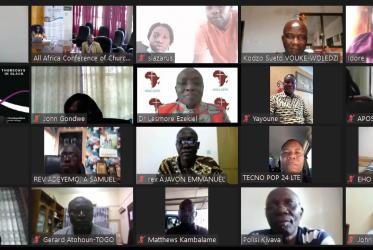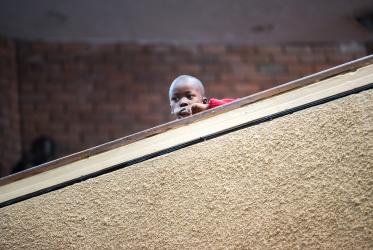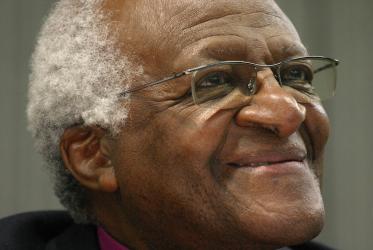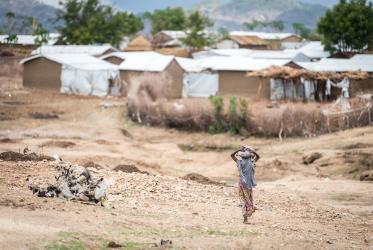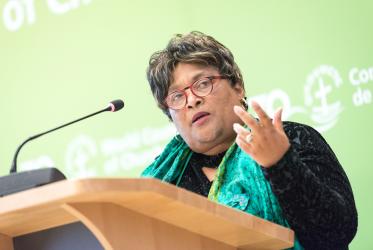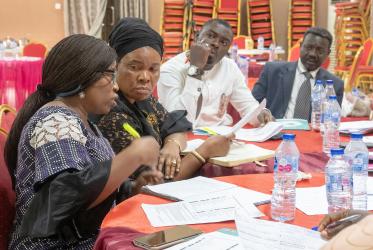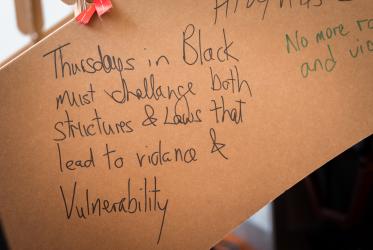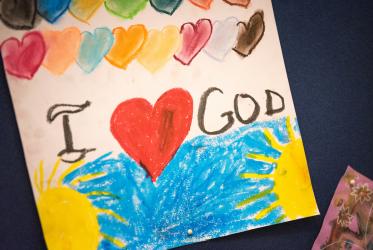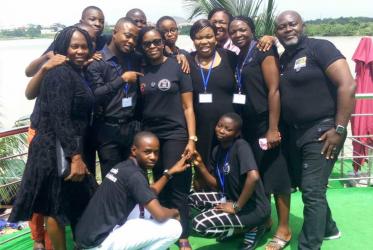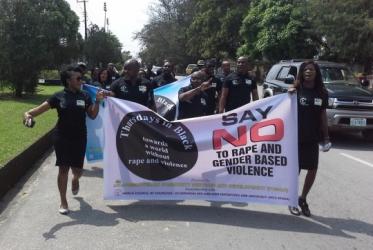Displaying 1 - 20 of 31
COVID-19 in conflict zones: “a crisis within another crisis”
27 November 2020
Churches in southern Africa stand against violence, xenophobia
10 October 2019
When you strike the women, you strike a rock
18 September 2019
Thursdays in Black: sharing support, transforming lives
21 February 2019
“Empower our pilgrimage through love”
07 November 2018
In Nigeria, Thursdays in Black is flourishing
26 March 2018
In Nigeria, WCC workshops focus on human rights
04 December 2017
